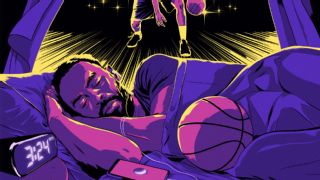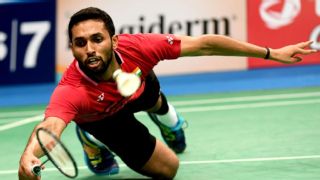|
Who would want to be Manu Bhaker or Saurabh Chaudhary tonight? Or even Yashaswi Deswal and Abhishek Verma? Tokyo 2020's first three days have featured six completed shooting events, 18 medals on offer with ten of India's 15 shooters having passed through the competitions, leaving behind a single finalist. India at Tokyo: Key dates | Athletes | Top storylines | News & features | Medal prospectsIt's like the nightmares of Rio - 12 shooters, no medals - turning the screws on public memory again. There's no telling what Monday night will be like for the eight Indians on the eve of the shooting event considered the most medal-friendly for India, if there is such a thing - the 10m rifle and pistol mixed team. No matter what transpires on Tuesday, each athlete will have a sleep-related tale to tell. Not enough sleep, disturbed sleep or even too much sleep are phenomena more widespread among elite athletes than we understand. According to the IOC's toolkit tackling mental health problems in elite athletes, released earlier this year, research among elite athletes in the run-up to the Rio Olympics revealed that 49% of them could be classified as 'poor sleepers', for whom disturbed or insufficient sleep led to sleeplessness and fatigue and from there, poor athletic performance. This is not meant to be a doomsday announcement, merely an indication of what the stress of big competitions can do. The night before his gold-winning event in Beijing, for example, Abhinav Bindra didn't sleep. "Not a wink. I was thinking about the event. I was ready." Naomi Osaka has said that she finds it difficult to sleep during Grand Slams; Jennifer Brady, her rival in the 2021 Australian Open final, was replying to messages till 6:30am on the morning of her final, at 730pm. The science of sleep has only just begun to play a large role in elite athletic training, patterns playing out differently across individuals. It's not just the shooters whose sleep will be (bad pun coming), shot. Manisha Malhotra, head of sports excellence and scouting at JSW Sport, which works with the national shooting team, found herself getting up every hour from 1 AM on Saturday, the first morning of the Tokyo shooting competition. Once again a reminder that at the Olympics, no matter who is in the mix, "the level of stress is something else." How stress plays itself out is individual and can cause sleep deficiency for some; it can also lead to cases where, Malhotra says, "when athletes are nervous, they sleep more. The body begins to shut down from the stress, it is just self-guarding, goes into self-preservation mode and you don't get rest. You are sluggish." This can be found in a lot of Indian athletes "where they are over-trained and, because of the lack of sleep training, they are never properly recovered. It is a very unique individual phenomenon and has to tackled individually."  Coaches and organisations working with elite athletes have begun to incorporate information about sleep habits in their reckoning and assessment of athletes' mental and physical states. Issues of acclimatisation and the lack of sleep leading to more screen time on phones then only adds to the cycle of poor quality sleep. Deepthi Bopaiah, executive director of GoSports, which is supporting eleven athletes currently in Tokyo, says, "We have begun to track sleep patterns of our athletes and while we don't have pure data, we find that those who are doing recovery ice baths, cool downs and stick to it religiously, they are sleeping better." When heading into a big competition if it means asking the poor sleepers among their athletes to carry their own pillows to the event, then so be it. HS Prannoy, the former world no. 8 in singles badminton, says most elite athletes come to terms with their tumultuous sleep patterns, particularly before big events. "[That's where] you realise that this match or this tournament might be the gamechanger... I've had so many times when sleep was just out of the window and I thought what am I going to do the next day if I'm sleeping like this." He said he realised that the pressure and excitement guided him into that match. During what he called normal tournaments he accepted he would not sleep well. "When matches are on, I can feel the excitement inside me. I realised later on, there is no point fighting this." Prannoy laughs as he says he gets "really good sleep" after losing. Athletes are creatures of habit and Prannoy said he would try to find patterns. At one Indian Open, he was up at 4 AM for a match against Taufik Hidayat at 11 AM. "I was wondering what I would do but I totally played well." He slept soundly the next night before facing Lee Chong Wei and lost. "A lot of superstitions also turn up for us - if you don't sleep well, you'll play well, if you sleep well, you'll play badly. I just worked out that my preparation has to be spot on, that's it." His solution these days: power naps. Quick 20 minute snatches of sleep on his way to the stadium while training - something that is quite en vogue in the sports science community.  Malhotra says sleep science has found its way into all modern training programmes - like sleep pods for NBA players, where LeBron James &Co take quick naps before coming on court to warm up before games. "This is an unchartered and untapped part of training, which we are going to have to incorporate before Paris 2024 in a very serious way," she says. "It has now been completely mapped out what REMs you need to hit for your body to be rejuvenated and for how long." For Indian athletes of the future, it could mean a deprogramming of both mind and body to learn a new way of training. REM sleep - which occurs in cycles for about 25% of a total nights' sleep - is expected to benefit general physical and mental health, as well as learning memory and mood. For the shooters tonight though, Prannoy can only extend empathy, "You feel bad for athletes in these kinds of sports, their performance depends on how relaxed and focused they are - everything is just on fractions. If you've lost it, you've lost it. There is no second chance. Badminton is also tough, sure, but you have a little more time. You can try different things on 42 points and maybe you make one change, you crack it and the game can get back to you." Malhotra mulls over Tuesday and says, that both mixed-team events make for the most revelatory of days. "A lot of things are at play. This Olympics has been a difficult one. But tomorrow is the key. What I will be looking at is after disappointment, how do they rebound. Real champions will come out fighting. Or will you not even turn up?" It's a question big enough to lose sleep over.
|
